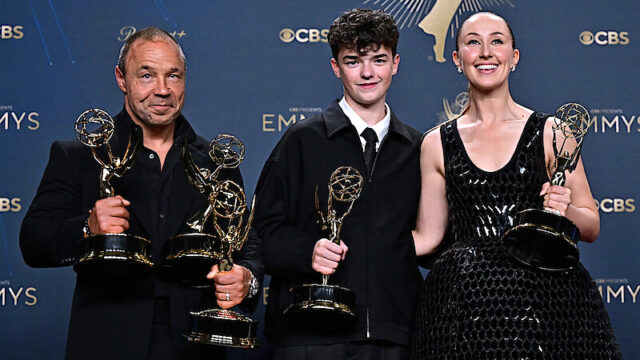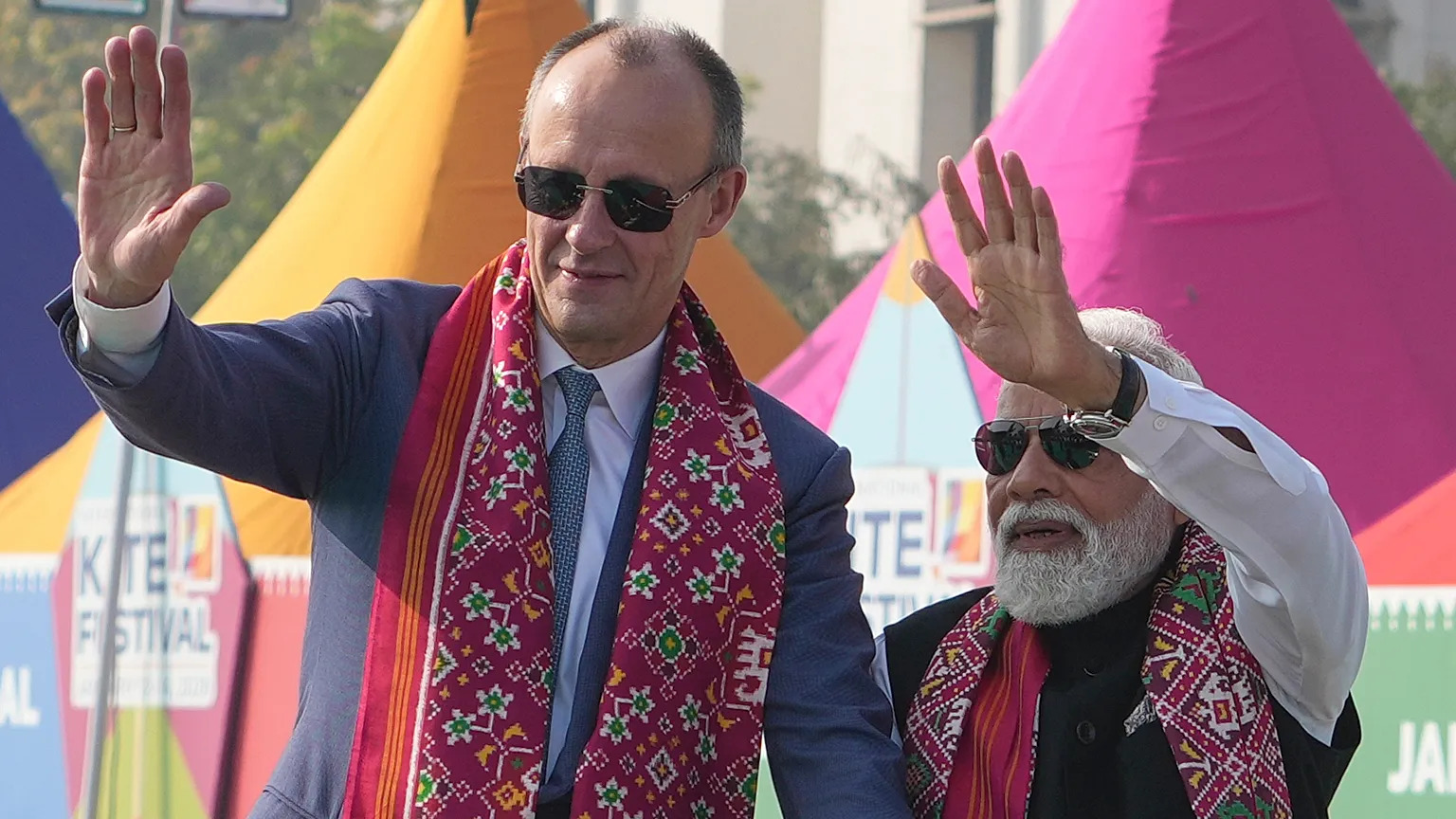On Sunday 15 September, Los Angeles once again became the epicentre of global television as the Emmy Awards celebrated the best in scripted drama, comedy and limited series. The ceremony delivered all the glamour one might expect from Hollywood’s grandest television showcase, but this year’s event will also be remembered for its historic achievements, unexpected turns, and a new generation of talent stepping confidently into the spotlight.
The dominance of Adolescence
The biggest winner of the evening was undoubtedly Netflix’s mini-series Adolescence. A taut and unsettling exploration of teenage life, the drama follows the story of a boy accused of murdering a classmate, and has been praised for its unflinching realism and layered storytelling.
With six trophies collected on the night, Adolescence confirmed its place as one of the most compelling and talked-about dramas of the past year. At the centre of this success was 15-year-old Owen Cooper, who won the Emmy for Outstanding Supporting Actor in a Limited or Anthology Series. For Cooper, the achievement was not only remarkable but also historic. At just 15, he became one of the youngest male acting winners in Emmy history. Entertainment observers were quick to point out the rarity of such an accomplishment. Max Goldbart, International TV Editor at Deadline, remarked: “Some Hollywood stars wait their entire careers for an Emmy, but Cooper has grabbed one after virtually performing his very first scene.”
Nevertheless, Cooper did not break the all-time record. That distinction still belongs to Roxana Zal, who in 1984 became the youngest-ever acting winner at just 14 years old for her role in Something About Amelia. Even so, Cooper’s win added a sense of generational change to the evening – a reminder that television continues to be reshaped by young talent capable of captivating audiences and critics alike.
The Studio sets a new standard in comedy
While Adolescence dominated the limited series categories, Apple TV’s The Studio proved unstoppable in comedy. The show, which satirises the inner workings of a fictional entertainment company, has become a critical darling and audience favourite since its debut. On Sunday, it claimed four awards, including the prestigious Outstanding Comedy Series. More significantly, it entered Emmy history by setting a new record for the most wins by a comedy in a single year. With 13 trophies in total – counting those it earned at the Creative Arts Emmys the previous week – The Studio surpassed long-standing benchmarks and cemented its reputation as one of the defining comedies of the era.
Such dominance is rare, and the record will likely stand as a point of pride for both the show’s creators and the streaming service that hosts it. For Apple TV, the win is further evidence of its growing influence in the increasingly competitive world of prestige television.
The rise of The Pitt
The drama categories also produced their share of intrigue. The Pitt, a US medical drama not yet available to British audiences, emerged as a surprise victor in one of the night’s most closely watched contests. Against competition from established favourites Severance and The White Lotus, The Pitt claimed the award for Outstanding Drama Series. Its triumph was further bolstered by Noah Wyle’s win for Outstanding Lead Actor in a Drama Series. For Wyle, who remains best known for his long-running role in ER, the award marked a significant professional milestone and a return to prominence in the genre that first made him a household name. The success of The Pitt demonstrates the continuing popularity of medical dramas within American television, a tradition stretching back to shows like St. Elsewhere and Grey’s Anatomy. While British viewers must wait to see what has made the series resonate so strongly, its recognition at the Emmys suggests a drama with considerable staying power.
Predictions, surprises and near misses
As is customary, the awards season was preceded by a wave of predictions from entertainment journalists and industry insiders. In several cases, the forecasts proved accurate. Jean Smart, a perennial Emmy favourite, won Outstanding Lead Actress in a Comedy Series for Hacks, while Seth Rogen secured Outstanding Lead Actor in a Comedy Series. Both victories were anticipated and warmly received, confirming the enduring strength of established performers within the comedy landscape.
Yet, the evening also reminded audiences that awards shows are rarely free of surprises. Many had tipped the third season of The White Lotus to dominate, particularly in the supporting categories. With four of the seven nominees for Best Supporting Actress in a Drama Series and three of the seven for the equivalent male category, expectations were high. In the end, the predictions proved wide of the mark. Katherine LaNasa took home the supporting actress award for The Pitt, while Tramell Tillman’s work on Severance earned him the equivalent accolade for supporting actor. Both wins were celebrated as deserving but nonetheless unexpected outcomes, disrupting what many had assumed would be a White Lotus sweep.
A night of milestones and meaning
Beyond the trophies and record-breaking numbers, the 2025 Emmy Awards reflected the evolving character of television. From Owen Cooper’s youthful triumph to The Studio’s unprecedented success, the evening highlighted both continuity and change within the medium. Established stars like Noah Wyle and Jean Smart reaffirmed their mastery, while new names emerged to signal the future direction of storytelling. What stood out most, however, was the diversity of genres and platforms recognised. Streaming giants such as Netflix and Apple TV continued to flex their influence, but traditional television drama also found room to shine through The Pitt. Meanwhile, the continued popularity of anthology series and limited dramas demonstrates audiences’ appetite for stories that challenge conventions and deliver tightly woven narratives. As the curtain fell on the 2025 ceremony, one truth became clear: the Emmys remain not only a barometer of artistic excellence but also a mirror of the shifting tastes and priorities of global audiences. Whether through record-breaking comedies, unsettling dramas, or the rise of fresh talent, this year’s winners proved that television remains the most dynamic and versatile of storytelling mediums.









